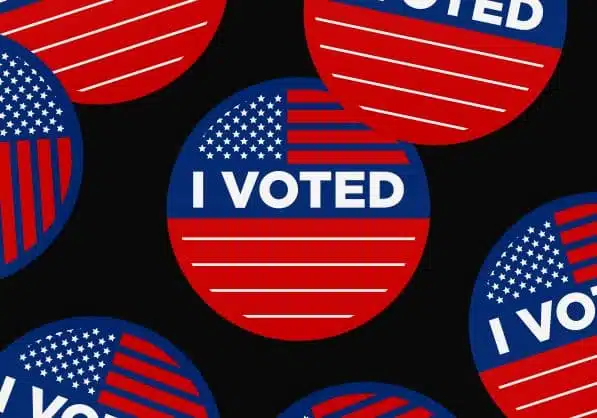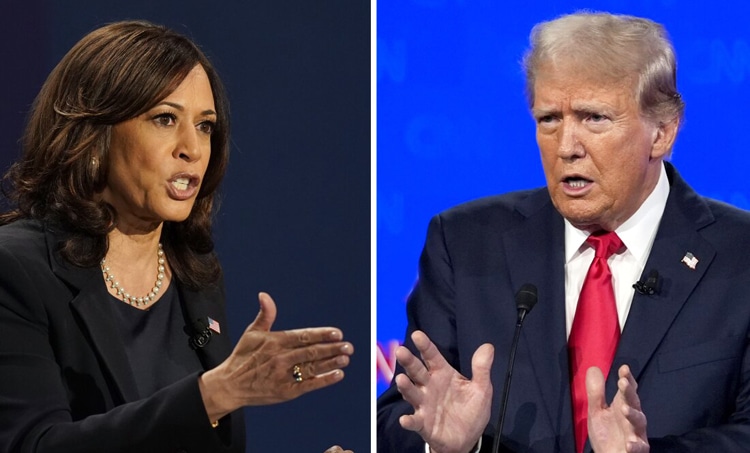Reflections on the Elections
Part 2
Jefrey Breshears
As Christians, our primary calling in life is to follow Jesus’ admonitions to “seek first the Kingdom of God and his righteousness” and “love the Lord your God with all your heart, soul, mind and strength,… and love others as you love yourself.” In that regard we should function as sources of spiritual Light, Love, Hope and Truth in the midst of a generally secular, postmodern, perverse and dysfunctional society and culture. Eternal matters – not temporal concerns – must be our priority, and what matters most is the cultivation of our soul.
As we mature spiritually, our moral and ethical sensibilities are sharpened to the extent that we become progressively more Christlike. As the apostle Paul wrote in Phil. 1:9-11, “This is my prayer: that your love may abound more and more in knowledge and depth of insight so that you may be able to discern what is best….” Accordingly, we begin to manifest the “fruit of the [Holy] Spirit” – love, joy, peace, patience, kindness, goodness, faithfulness, gentleness, and self control [Gal. 5:22-23]. We become wiser, more mature and more honest, dependable, considerate of others, and more devoted to what is True, Good, and Beautiful in keeping with Paul’s admonition in Eph. 5:1-16 – “Be very careful… how you live,… making the most of every opportunity, because the days are evil.”
That is our primary purpose for being: wholistic spiritual maturity (including, I might add, intellectual, emotional and moral maturity) as we fulfill our ultimate calling in life to be conformed to the image of Christ [Rom. 8:29]. That is the main thing, and that is what matters most in this life.
But the main thing is not the only thing. As citizens of a free and democratic society that is ideally governed by the rule of law, politics matters. In fact, politics matters because the laws, priorities, policies and programs of government can directly impact the quality of life for its citizens – either for better or for worse. While we cannot expect a predominantly secular/non-Christian society to live by the highest standards of Christian morality and ethics, we can and should expect our society to uphold basic standards of decency and civility in keeping with the principles of Natural (moral) Law. (See Chapter 2 in American Crisis.)
This is why many of us were so concerned about this election. Much was at stake. Donald Trump was the most “paradoxical president” in American history. Although many of us found much of his rhetoric and public behavior to be immature, embarrassing and at times even repulsive, his priorities and policies were overwhelmingly positive. He accomplished far more in his term in office than any president since at least World War II – despite constant venomous attacks and harassment by Democrats and their allies in the media, academia, Big Tech, and the entertainment industry.
Donald Trump was, in many respects, one of the most successful presidents in history in terms of how he handled many of the issues that mattered most including:
- Federal court appointments,
- Management of the economy,
- Energy policies that restored American energy-independence for the first time in many decades,
- Strengthening the nation’s military,
- Support for local law enforcement,
- Policies regarding border security,
- Foreign policies vis-a-vis Israel, Iran, Russia, and China,
- Strong support for religious liberty and the pro-life movement – and, I might add…
- A balanced approach in terms of containing the COVID-19 pandemic without destroying the nation’s economy – a crisis that no one, including most health “experts,” had much of a clue as to how to manage.
How could thoughtful and well-informed Christians who care about the well-being of our neighbors not appreciate and support his efforts? How could a thoughtful and well-informed Christian not realize that these vital issues are of paramount importance – not the President’s annoying, exasperating and sometimes infuriating mannerisms and sloppy and hyperbolic rhetoric? After all, politicians and their personalities come and go, but laws, policies and programs continue on indefinitely.
The results of this year’s presidential election have not yet be formalized, but it seems likely that political power and the nation’s political agenda will be dominated by the Democratic Party. This is cause for grave concern.
In Chapter 8 of American Crisis, I wrote regarding the Democratic Party:
For much of my adult life I sought to be as nonpartisan as possible, realizing that neither party is ideal. But the Democratic Party of the last fifty years – since its lurch leftward in 1972 with the nomination of George McGovern – is not the Democratic Party of FDR or even JFK. The modern Democratic Party is simply the partisan political expression of a secular socialist ideology. Though Republicans are often timid and pathetic, it is the Democratic Party that is the driving force behind virtually all the immoral, irrational, impractical, irresponsible and counterproductive policies and programs that are bankrupting America economically, socially, morally and spiritually. Christians who still identify with the Democratic Party are living in the distant past, totally out of touch with reality and seemingly incapable of connecting the dots. The Republican Party may be (and often is) the party of mediocrity, but the Democratic Party is indisputably the party of venality. Mediocrity is a concession to human limitations and fallibility. Venality is a purposeful surrender to the most base and evil impulses in human nature. In a broken and fallen world, I will take mediocrity over venality any day. It is an unfortunate choice that we often (but thankfully, not always) must make.
Later in the book, in Chapter 9, I noted:
The Democratic Party has become the party of refuge for most secularists, cultural liberals, multiculturalists, the media, Hollywood and academic elites, labor unions, the trial lawyers associations, the open-borders lobby, neo-Marxists, environmental extremists, radical feminists, homosexual and transgender activists, and black and Hispanic racialists. Listening to Democratic politicians and activists, their spin doctors and their sycophants in the media, one can only conclude that the party has lost not only all common sense but any moral sensibilities it might once have had. If consistency were a virtue in itself, one could concede that the Democratic Party is remarkably impressive. The problem, of course, is that it is consistently on the wrong side of most every political, legal, social and moral issue….
In actuality, the main difference in the political parties is that the Republican Party has a base of social conservatives who care about traditional moral values while the Democratic Party functions as the political arm of a radical secular cultural agenda that is absolutely devastating the moral and civic climate in America. Furthermore, the Republican base includes millions of Christians who care passionately about religious liberty. Within the Democratic Party, virtually the only time religious liberty is a priority is when Muslim rights are an issue.
A Category 5 spiritual and moral hurricane is brewing. What can Christians do to prepare for the coming assaults on our values and beliefs? That is the subject that I address in the final three chapters of American Crisis. Check it out and encourage others to do so as well.






